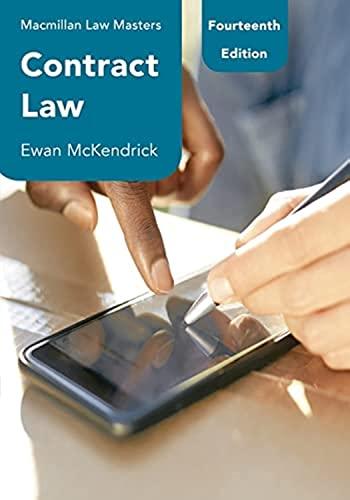Answered step by step
Verified Expert Solution
Question
1 Approved Answer
respond to the comment: When a partner in the ABCD partnership makes a sale to the partnership, it can be considered a disguised sale if
respond to the comment: When a partner in the ABCD partnership makes a sale to the partnership, it can be considered a disguised sale if the partner owns a share of the partnership. According to U.S. Code 707(a), if a partner engages in a transaction with the partnership that is not in their capacity as a member of the partnership, the transaction will be considered as occurring between the partnership and someone who is not a partner, unless otherwise proven in this section. In Schwarz, p. 286: 3(a-c), we have an example problem. In 3(a), the transaction is a straight sale and is taxed as such under 707(a)(1). Partner "A" would have a gain of $19,000, and depending on the depreciation, some of it may be 1245 depreciation recaptured and taxed as ordinary income. The partnership takes a cost basis of $20,000 in the property. The transaction doesn't affect partner "A"'s outside basis, and they are allocated $15,000 of the income. The outcome in 3(b) and 3(c) is slightly different. In these scenarios, partner "A" doesn't sell the equipment to the partnership; instead, they contribute it. Later in the year, they take $20,000 in cash. If we respect the form of these two transactions, then "A" would recognize no gain. Partner "A" ends up in the same position as in part (a) of the problem. However, if we treat the transactions separately rather than simultaneously, things look slightly different. Section 721's purpose is to avoid creating tax obstacles to the contribut
Step by Step Solution
There are 3 Steps involved in it
Step: 1

Get Instant Access to Expert-Tailored Solutions
See step-by-step solutions with expert insights and AI powered tools for academic success
Step: 2

Step: 3

Ace Your Homework with AI
Get the answers you need in no time with our AI-driven, step-by-step assistance
Get Started


